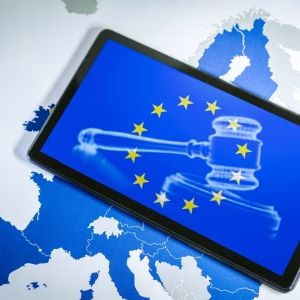
Now that we are in the midst of February 2018, the full and looming form of GDPR is silhouetted on the horizon. With its arrival marked for the 25th of May many are waking up to the need to be compliant before being faced with a heavy fine.
The notion of GDPR being an opportunity has been lost in a buzz of fearful murmuring regarding the impending deadline, but some are still keen to emphasise the opportunity that is coming with the transformational piece of EU regulation.
You may not have considered the full beneficial potential of embracing GDPR, but some foresee a chance to bring new vision to the entire digital infrastructure of an organisation. If compliance is achieved properly some believe the move could breathe new life into an organisation and reposition it to leverage the full benefits of the increasingly dynamic digital future.

One believer in this notion that we got to speak to is Adrian McDonald, EMEA President, Dell EMC, he said: “GDPR I think is there for good reasons, I think ultimately we will be glad that the European Union focussed upon this set of legislation which ultimately makes it a global set of legislation. I think similar legislation will develop throughout the world.”
The Dell EMC EMEA President has chosen to take a positive attitude towards GDPR, viewing it as a benefit that we will one day be glad of, having ushered in a new era of data protection that will enhance the way business works.
“In essence it is saying that we have to knowingly know how we are looking after the security, the privacy and the access to the entire private information of our customers our team members and anyone we transact with. This is causing the global public sector to have to develop conscious data strategies that were not necessarily in place before. So we have immense skill sets in these areas, we have specific parts of our business which are focussed just on GDPR and we are consulting with our customers on how to best align their data strategy and how to be compliant,” McDonald said.
In regard to whether many organisations will fail to be compliant by the deadline, McDonald was a realist. While he is positive that the regulation will prove beneficial in the long run, he is aware that many organisations are still behind the curve on preparation.
PyeongChang Winter Olympics cyberattack revealed
Ransomware downtime costs European SMBs £71 million
Criminals stashing billions in cryptocurrency – Europol
“I think it is fair to say that the actual task is not insubstantial, so can everyone get this finished within the first few months of this year? That remains to be seen, I think some will get there, most will have made substantial strides. Either they will have delivered on this or have a process in place that they can reference should they be called upon to outline what their strategy is. I would be optimistic that with significant help most of the global plc will be able to get there. Will they all get it done in time? The simple answer is no.”
Mr McDonald was keen to convey is belief that the benefits GDPR has in store go beyond simply revamping your approach to data protection, he foresees far greater benefits that could ultimately unlock the future for many organisations and stimulate their go-to-market capabilities.

Ultimately many companies are looking at this as an opportunity, there are many things you have to do to be legally compliant, but once you fully understand what those are it has great implications for how you manage, store and archive information. When you understand that in many cases you have to have an entirely different data strategy, it actually offers you an opportunity to modernise. Many people are using GDPR as an opportunity to modernise their whole digital infrastructure.
As the world charges towards the promise land of digital transformation many are losing sight of the importance of security, putting valuable data at risk. The threat landscape is so vast and panoplied that it simply cannot be ignored if organisations want to be successful, but the availability of data is vital for digital transformation. With data becoming the lifeblood of development and innovation, its protection is second to none in terms of importance.






